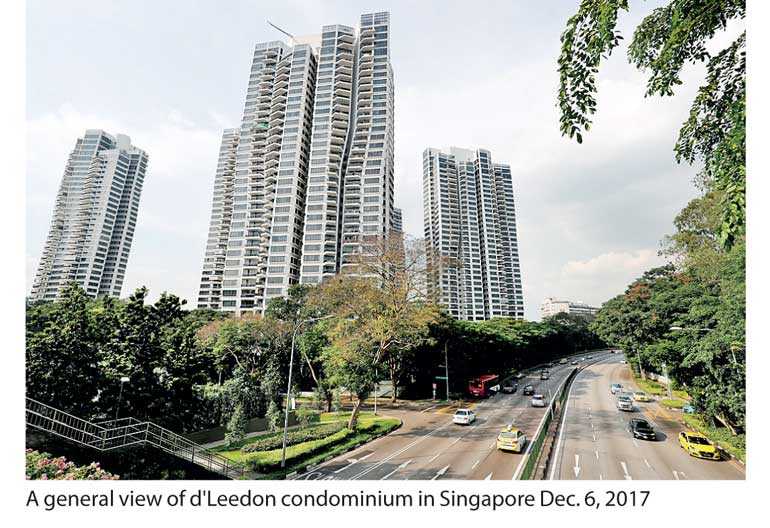Wednesday Feb 25, 2026
Wednesday Feb 25, 2026
Friday, 20 April 2018 00:00 - - {{hitsCtrl.values.hits}}

Two Airbnb hosts fined in Singapore’s first such case
Singapore (Reuters): A Singapore court fined two Airbnb hosts a total of S$ 60,000 ($ 45,800) each recently for unauthorised short-term letting, in the first such case under the city-state’s rules on short-term property rentals introduced last year.
The two men had pleaded guilty to four charges each for letting four flats in a condominium for less than six months without permission from the Urban Redevelopment Authority (URA).
They faced a fine of up to S$ 200,000 per offence under Singapore law. Prosecutors sought fines of S$ 20,000 per charge for a total of S$ 80,000 for each of the two defendants. The defence sought fines of S$ 5,000 per charge. Judge Kenneth Choo fined the two hosts S$ 15,000 per charge each, saying this would also serve as a signal to deter others from pursuing such illegal business.
Private homes are subject to a minimum rental period of three consecutive months, while for public housing, home to about 80 percent of Singapore’s residents, it is six months.
The issue of short-term accommodation in private homes is complex and multi-faceted, and has wide-ranging implications, the URA said in a forum letter in the Straits Times.
The URA plans to conduct a public consultation on a proposed regulatory framework for short-term letting soon.
“It will take some time to work through the consultation process and to amend legislation, if necessary, for the new rules to take effect,” the URA letter in the paper says. A high-population density and limited land mean most of Singapore’s 5.6 million people live in apartments.
“We look forward to obtaining greater clarity for our community following the upcoming public consultation,” said Mich Goh, Airbnb’s head of public policy for Southeast Asia.
Airbnb, founded in 2008 in San Francisco, matches people wishing to rent out all or part of their homes to temporary guests. It previously indicated that it was willing to make some concessions on short-term rentals in Singapore in an attempt to appease concerns of the government.
Wong Soo Chih, the two hosts’ lawyer, said they paid their fines on the spot. She called the fines “fair and reasonable”, but questioned whether it was premature in view of the upcoming consultation.
Singapore (Reuters): Singapore proposed on Monday allowing private home owners to let out their property for short-term rentals but with an annual cap of 90 days a year - part of a consultation process welcomed by rental service Airbnb.
Private homes in Singapore are currently subject to a minimum rental period of three consecutive months, and such strict rules make the city-state one of the tougher markets in which Airbnb operates.
Two Airbnb hosts were fined S$ 60,000 ($ 45,800) each by a local court this month for unauthorised short-term letting.
Singapore’s proposal to limit rentals days is broadly in line with measures introduced by other cities such as Paris, London and Amsterdam. The city state has begun seeking public feedback on the proposal and other measures to regulate the sector.
Airbnb, which previously called Singapore’s regulatory framework “untenable” after news of the illegal rentals broke late last year, said on Monday it welcomed the consultation.
“We’re committed to reasonable solutions that will allow responsible home sharing to thrive in Singapore and welcome the opportunity to provide feedback through the consultation process,” said Mich Goh, head of public policy for Airbnb Singapore.
While Singapore has been an early adopter of the sharing economy, it is also keen to minimise any potential negative impact of allowing short-term rentals, as most of the wealthy but land-scarce city-state’s 5.6 million people live in public and private apartments.
The proposed rules require that a significant majority of owners in a condominium complex agree to the presence of short-term rentals in their development.
The Government is also seeking feedback on issues such as what homes should qualify and the responsibilities of short-term accommodation companies, the Urban Redevelopment Authority (URA) said on Monday.
The URA said it will also consider the licensing of operators that advertise or market short-term rental units.
Responsibilities of such companies could include paying relevant taxes on revenue generated from business activities in Singapore and facilitating the collection of taxes from hosts.
The agency said it would consider factors such as the type of residential development and the character of the area when assessing applications for short-term rentals.
The public can provide feedback until 31 May.